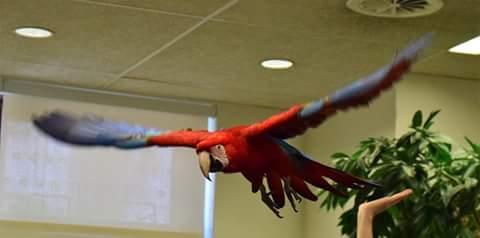
Hatch Questions Supreme Court Nominee Gorsuch, Recaps Day 2
Washington, D.C.—Senator Orrin Hatch, the senior member and former Chairman of the Senate Judicary Committee, spoke on video following the second day of confirmation hearings for Judge Neil Gorsuch, the President’s nominee for Supreme Court of the United States.
Highlights from Senator Hatch’s first round of questions for Judge Gorsuch, which focused on the proper role of a judge, the importance of judicial independence, and balancing “judicial modesty” with compassion for those impacted by rulings:
...
[Message clipped] View entire message
========================
Gorsuch Hearing Focuses on Hatch’s Religious Freedom Law
Washington, D.C.—A major focus of Judge Neil Gorsuch’s Supreme Court confirmation hearing has been the Religious Freedom Restoration Act. The law, authored in 1993 by U.S. Senator Orrin G. Hatch, R-Utah, mandates that courts apply “strict scrutiny” when the government attempts to burden the free exercise of religion. Hatch’s law was referenced by multiple senators and the nominee in various exchanges, including in a dialogue with Hatch himself, the senior member and former Chairman of the Senate Judiciary Committee.
(Video Via YouTube— Includes Senators Hatch, Durbin, Coons, Hirono and Klobuchar)
Excerpts:
Hatch: “You wrote a concurring opinion in the Hobby Lobby case. You wrote about the Religious Freedom Restoration Act that “it does perhaps its most important work in protecting unpopular religious beliefs, vindicating this nation’s long-standing aspiration to serve as a refuge of religious tolerance.” In other words, Congress enacted RFRA to apply broadly and robustly to ensure that, among other things, the little guy would be protected as much as the big one. Is it fair to say that the court's decision in Hobby Lobby and your concurring opinion upheld this purpose and, in doing so, actually defended the unpopular and promoted religious tolerance?
Gorsuch: “I Might give you even a couple other examples of RFRA’s application that I’ve been involved in that night shed some light on this. It’s the same statute that applies not only to hobby lobby, it also applies to little sisters of the poor, and protects thie religious exercise.
It applied to a Muslim prisoner in Oklahoma who was denied a halal meal. It’s also the same law that protects the rights of a Native American prisoner who was denied access to his prison sweat lodge it appeared, solely in retribution for a crime that he committed and it was a heinous crime. But it protects him, too. And I wrote those decisions as well, Senator, yes. I wrote the – the Native American prisoner case and I participated in and I wrote a concurrence in the Muslim prisoner case."
In a later exchange with Senator Dick Durbin (D-IL), Judge Gorsuch said “Congress decided that there was insufficient protection for religion. And in a bill sponsored by Senator Hatch, Senator Kennedy, and Senator Schumer, when he was in the House wrote a very, very strict law and it says that any sincerely held religious belief cannot be abridged by the government without a compelling reason. And even then, it has to be neatly tailored.
I have applied that same law, RFRA, to Muslim prisoners in Oklahoma, to Native Americans who wished to use an existing sweat lodge in Wyoming, and to Little Sisters of the Poor.”